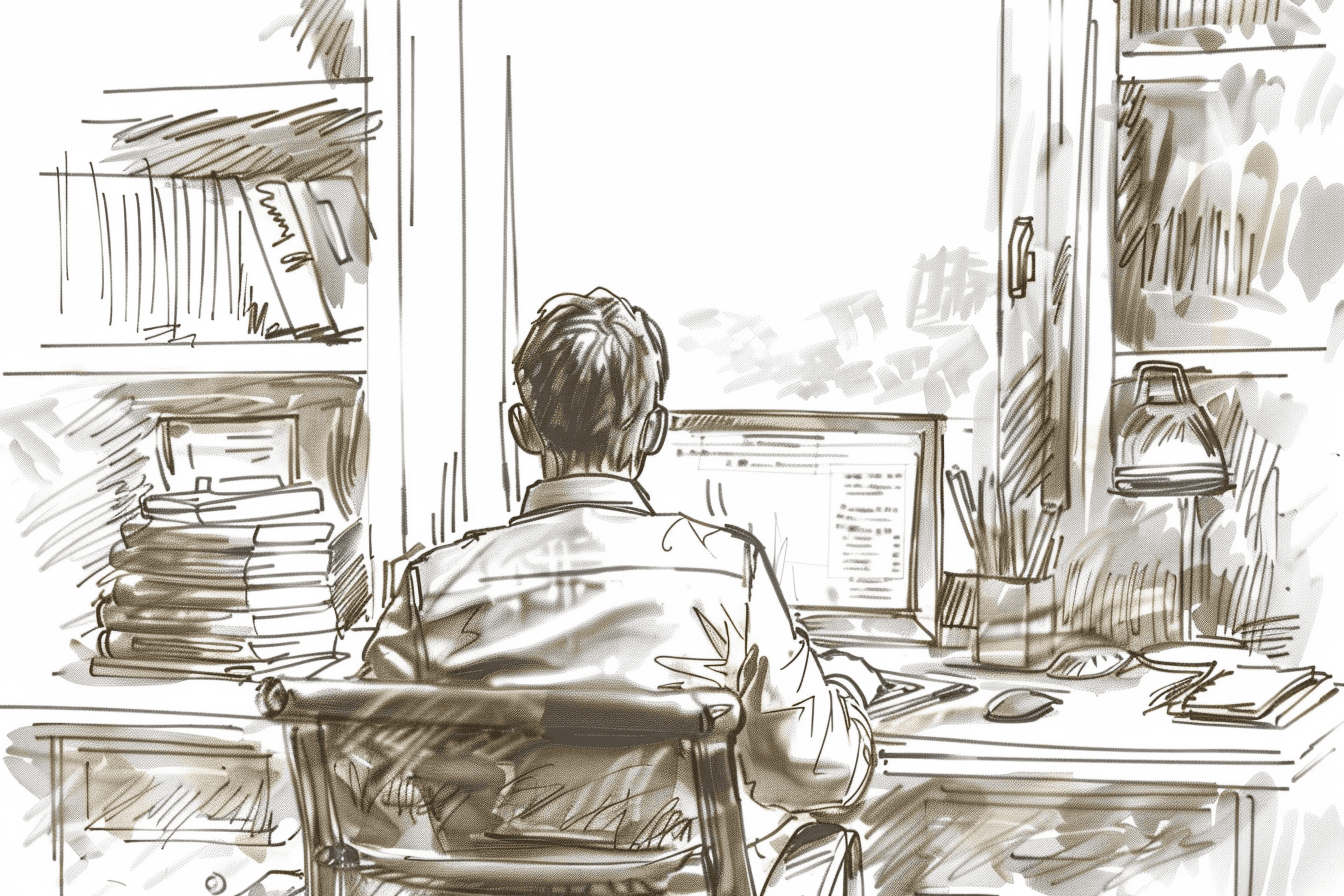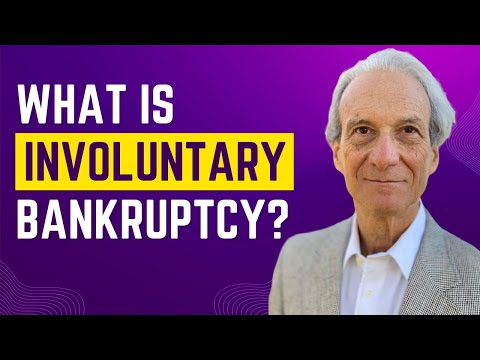An involuntary bankruptcy allows a creditor to force a debtor into bankruptcy in order to pay their debts. Involuntary bankruptcy is rare in Florida, but a creditor may seek involuntary bankruptcy if the creditor believes the debtor has the ability to pay the debt.
How to File Involuntary Bankruptcy
To file involuntary bankruptcy, a creditor must (1) prove that their claim is not subject to a bona fide dispute, (2) show that the debtor does not have any legitimate defense, and (3) demonstrate that the debtor is not paying their non-disputed debts as they become due.
Involuntary bankruptcy is important because bankruptcy law makes bankruptcy court an inhospitable environment for Florida debtors. Bankruptcy planning starts with an evaluation of the debtor’s asset exemptions. Some types of assets are exempt from bankruptcy administration.
In a Chapter 7 liquidation bankruptcy, the bankruptcy trustee may not liquidate a debtor’s exempt assets to pay creditors. The debtor retains their exempt assets through and after the bankruptcy. Exempt assets are also exempt in state court from creditor judgment collection. Bankruptcy, especially Chapter 7 liquidation, usually does not work well for debtors with substantial non-exempt assets.
Asset Protection Rules in Bankruptcy
Bankruptcy law creates a divergence between liberal asset exemptions in Florida’s state court collection proceedings and the federal bankruptcy system, which is more creditor-oriented. Bankruptcy law deprives Florida debtors of asset exemptions available in state court, including part of Florida’s homestead exemption. Florida debtors retain their full homestead exemption from creditors in state court proceedings, but their homestead exemption is limited in bankruptcy court. Bankruptcy law also gives the bankruptcy trustee greater collection remedies than are available to creditors in state court collections.
We help protect your assets from creditors.
Jon Alper and Gideon Alper are nationally recognized experts in asset protection planning with over 50 years of combined experience. They provide all services remotely by phone or Zoom.

Section 303 of Bankruptcy Law
Bankruptcy law only affects debtors who are under the jurisdiction of the bankruptcy court. Debtors can decide themselves whether to voluntarily file a bankruptcy petition. Section 303 of the Bankruptcy Code law gives creditors a way to force the debtor into bankruptcy by filing an involuntary bankruptcy petition. Many debtors are worried about their creditors forcing them into involuntary Chapter 7 bankruptcy where they could lose part of their homestead exemption and confront a bankruptcy trustee armed with enhanced collection tools. Any single creditor with a claim of more than approximately $12,000 can file a petition for involuntary bankruptcy provided the debtor has less than 12 unsecured creditors. When a debtor has 12 or more creditors, any three creditors together may petition for involuntary bankruptcy. Courts do not count small recurring monthly bills such as utility bills or phone bills. Debts owed to professional advisors such as attorneys, CPAs, or consultants are eligible creditors.
An independent basis for involuntary bankruptcy is the debtor’s transfer of substantially all its assets to a third party, such as a trustee or receiver. A voluntary assignment of assets for the benefit of creditors in a state court proceeding or in an out-of-court settlement triggers the right to involuntary bankruptcy if filed within 120 days of the debtor’s transfer. A debtor who makes an assignment for the benefit of creditors under Florida Statute Chapter 727 invites a petition for involuntary bankruptcy.

Likelihood of Involuntary Bankruptcy
An involuntary bankruptcy filing may seem like an easy remedy for unsatisfied creditors. In fact, involuntary bankruptcy is uncommon because other legal requirements make it difficult and risky for a creditor to pursue forcing a debtor into bankruptcy involuntarily.
The main reason involuntary bankruptcy petitions are uncommon is the creditor’s liability for filing an unsuccessful petition. When a bankruptcy court dismisses an involuntary bankruptcy petition for any reason the court usually sanctions the petitioner (the filing creditor) with a judgment for the debtor’s attorney fees, compensatory damages, and, where appropriate, punitive damages. In most cases, damages and fees are awarded even in the absence of bad faith
A fundamental requirement for a creditor’s involuntary bankruptcy petition is that the petition be filed in good faith. The historical purpose of involuntary bankruptcy is to prevent fairness to creditors as a group by ensuring fair and proportionate distribution of a debtor’s non-exempt assets. Involuntary bankruptcy is properly imposed to prevent a debtor from fraudulently conveying assets or from giving preferential payments to favored creditors. Courts will dismiss involuntary bankruptcy petitions filed for an improper purpose such as malice, harassment, or other improper use of bankruptcy procedures.
Applying this standard, courts have dismissed involuntary bankruptcy petitions which were designed to shut down a debtor corporation’s business, gain settlement leverage, or substitute for customary state court collection. Most bankruptcy courts will not allow involuntary bankruptcy to be used as a creditor collection tool employed by an aggressive creditor.
An involuntary bankruptcy petition is also subject to dismissal if there is an ongoing bona fide legal dispute between the debtor and the petitioning creditor that affects the creditor’s legal claim. It is difficult for a creditor to determine prior to filing an involuntary petition whether its claims are subject to a debtor’s bona fide dispute. It is also difficult to know if a debtor has more than 12 creditors without securing the debtor’s sworn testimony about their other debts. Many debtors protect themselves against an involuntary petition by a particularly angry creditor by accumulating more than 12 creditors. Most creditors are reluctant to file an involuntary bankruptcy petition and risk sanctions unless they are sure that the debtor has no defense against the bankruptcy.
Voluntary Bankruptcy vs. Involuntary Bankruptcy
Voluntary bankruptcy and involuntary bankruptcy refer to different methods by which bankruptcy proceedings can be initiated.
Voluntary Bankruptcy. This is when the debtor decides to file for bankruptcy. They might make this decision when they cannot meet their financial obligations and want to get some relief from their debts or want to restructure them in a manageable way. The exact process and consequences depend on the specific type of bankruptcy being filed, such as Chapter 7 or Chapter 13 for individuals in the United States. In a Chapter 7 bankruptcy, a debtor’s non-exempt assets are liquidated to pay off creditors, and the remaining debts are typically discharged. In a Chapter 13 bankruptcy, a debtor proposes a repayment plan to pay off their debts over three to five years.
Involuntary Bankruptcy. This is when a debtor’s creditors initiate the bankruptcy process. In the United States, this is typically done under Chapter 7 or Chapter 11. This can occur if the creditors believe that the debtor has enough assets to cover their debts but is not making appropriate efforts to repay them. For an involuntary bankruptcy to proceed, certain conditions must be met. For example, there must be a minimum number of creditors and a minimum amount of debt. Additionally, the debtor has the right to contest an involuntary bankruptcy filing.
Both types of bankruptcy have serious consequences and can significantly impact a person’s or a company’s financial future. They can result in the liquidation of assets, a significant impact on credit scores, and potential difficulty securing financing or credit in the future. As such, these options are generally only pursued when a debtor cannot meet their financial obligations.
Sign up for the latest information.
Get regular updates from our blog, where we discuss asset protection techniques and answer common questions.










